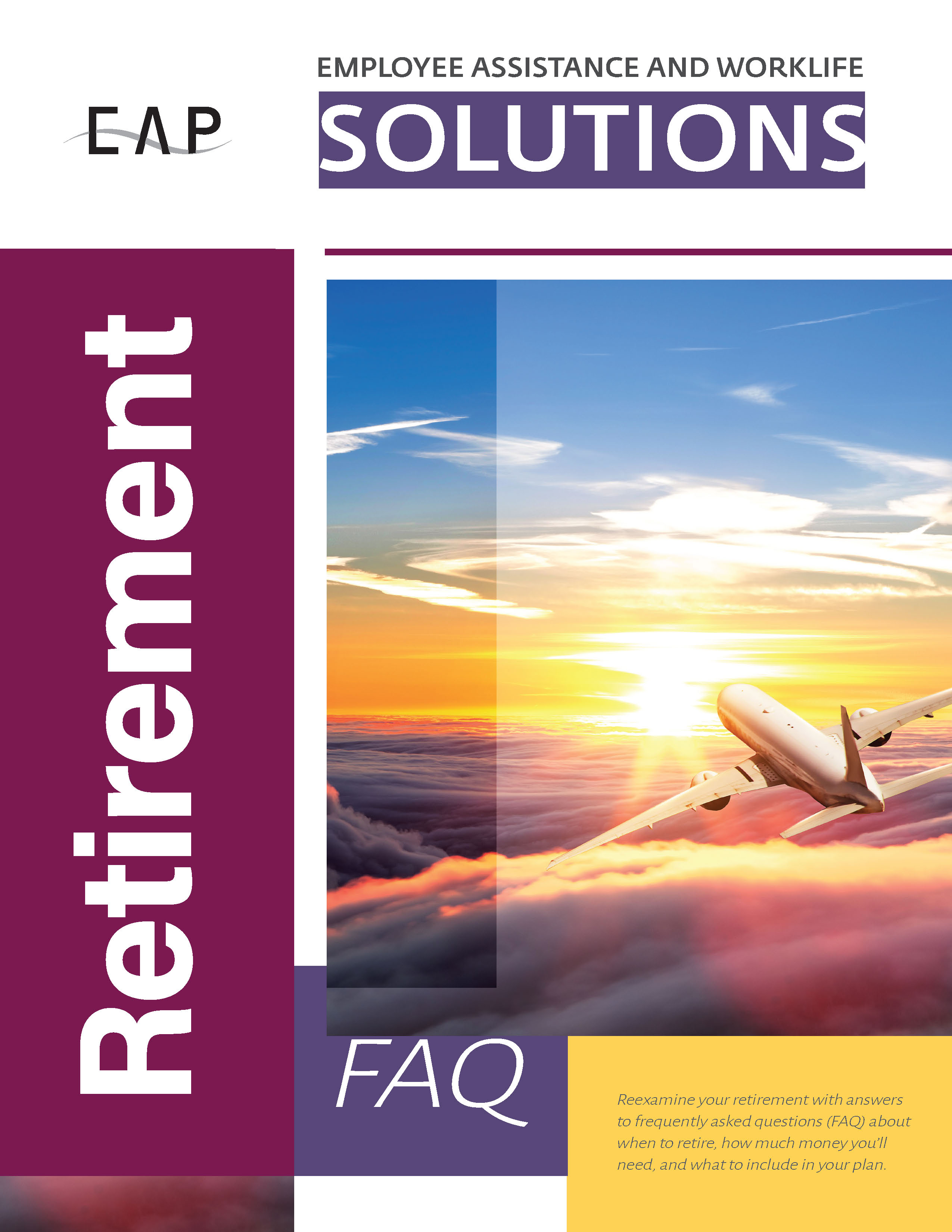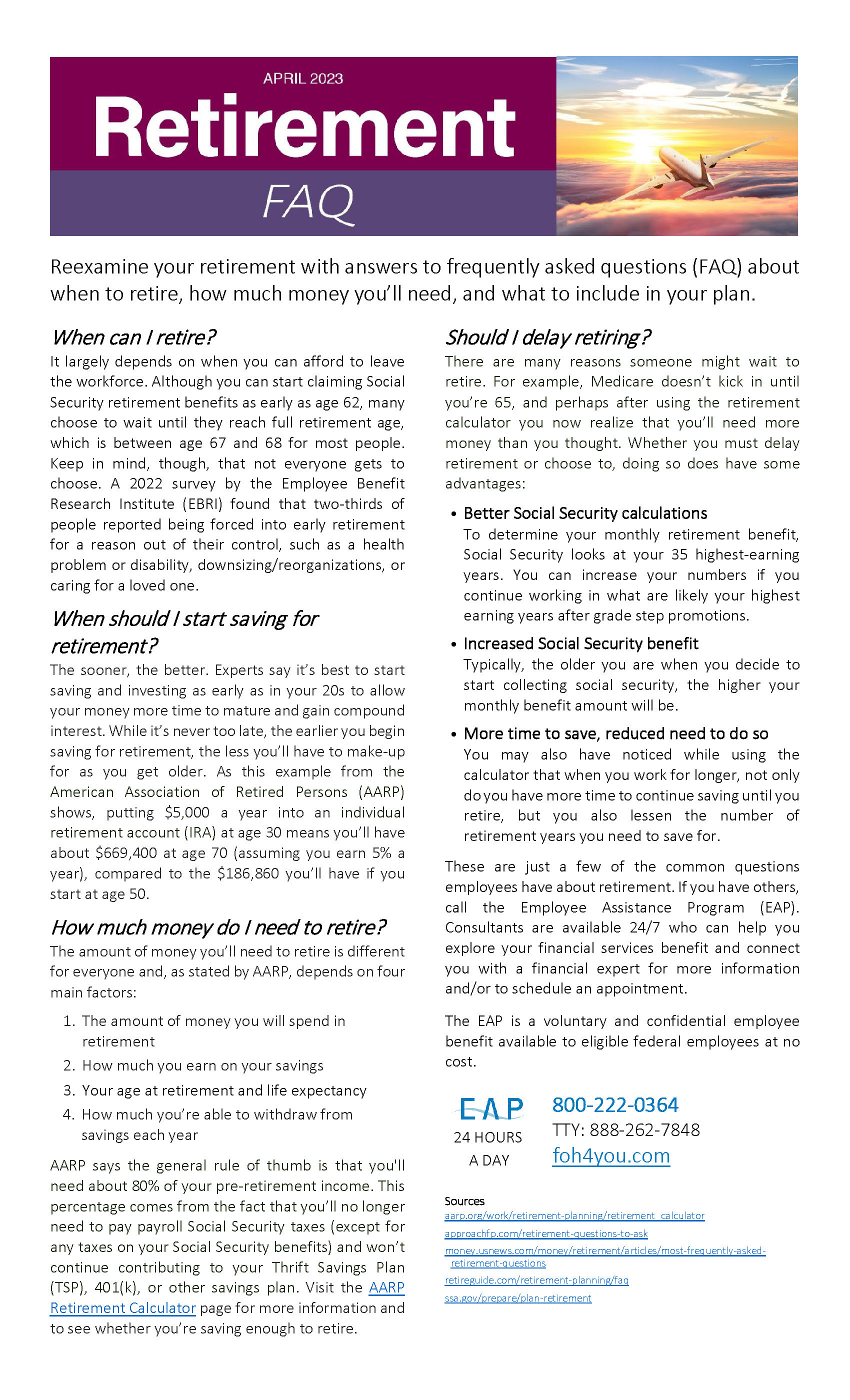
Reexamine your retirement with answers to frequently asked questions (FAQ) about when to retire, how much money you’ll need, and what to include in your plan.
When can I retire?
It largely depends on when you can afford to leave the workforce. Although you can start claiming Social Security retirement benefits as early as age 62, many choose to wait until they reach full retirement age, which is between age 67 and 68 for most people. Keep in mind, though, that not everyone gets to choose. A 2022 survey by the Employee Benefit Research Institute (EBRI) found that two-thirds of people reported being forced into early retirement for a reason out of their control, such as a health problem or disability, downsizing/reorganizations, or caring for a loved one.
When should I start saving for retirement?
The sooner, the better. Experts say it’s best to start saving and investing as early as in your 20s to allow your money more time to mature and gain compound interest. While it’s never too late, the earlier you begin saving for retirement, the less you’ll have to make-up for as you get older. As this example from the American Association of Retired Persons (AARP) shows, putting $5,000 a year into an individual retirement account (IRA) at age 30 means you’ll have about $669,400 at age 70 (assuming you earn 5% a year), compared to the $186,860 you’ll have if you start at age 50.
How much money do I need to retire?
The amount of money you’ll need to retire is different for everyone and, as stated by AARP, depends on four main factors:
- The amount of money you will spend in retirement
- How much you earn on your savings
- Your age at retirement and life expectancy
- How much you’re able to withdraw from savings each year
AARP says the general rule of thumb is that you'll need about 80% of your pre-retirement income. This percentage comes from the fact that you’ll no longer need to pay payroll Social Security taxes (except for any taxes on your Social Security benefits) and won’t continue contributing to your Thrift Savings Plan (TSP), 401(k), or other savings plan. Visit the AARP Retirement Calculator page for more information and to see whether you’re saving enough to retire.
Should I delay retiring?
There are many reasons someone might wait to retire. For example, Medicare doesn’t kick in until you’re 65, and perhaps after using the retirement calculator you now realize that you’ll need more money than you thought. Whether you must delay retirement or choose to, doing so does have some advantages:
- Better Social Security calculations: To determine your monthly retirement benefit, Social Security looks at your 35 highest-earning years. You can increase your numbers if you continue working in what are likely your highest earning years after grade step promotions.
- Increased Social Security benefit: Typically, the older you are when you decide to start collecting social security, the higher your monthly benefit amount will be.
- More time to save, reduced need to do so: You may also have noticed while using the calculator that when you work for longer, not only do you have more time to continue saving until you retire, but you also lessen the number of retirement years you need to save for.
Download the Campaign
|
Poster |
PDF Newsletter |
PT Newsletter |
|
These are just a few of the common questions employees have about retirement. If you have others, call the Employee Assistance Program (EAP). Consultants are available 24/7 who can help you explore your financial services benefit and connect you with a financial expert for more information and/or to schedule an appointment. 24 HOURS A DAY
The EAP is a voluntary and confidential employee benefit available to eligible federal employees at no cost. |




